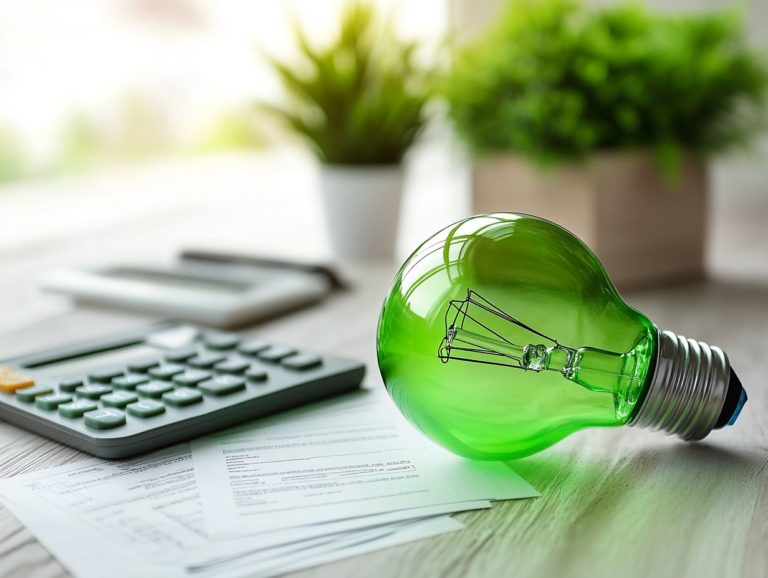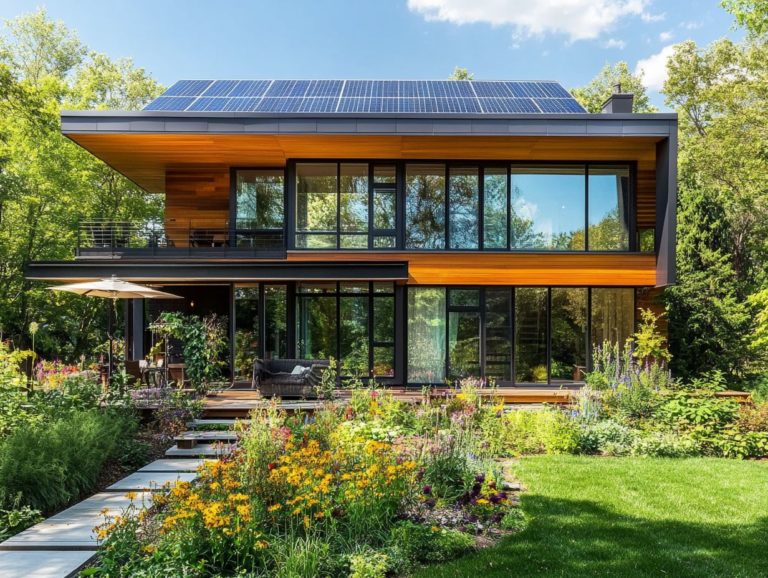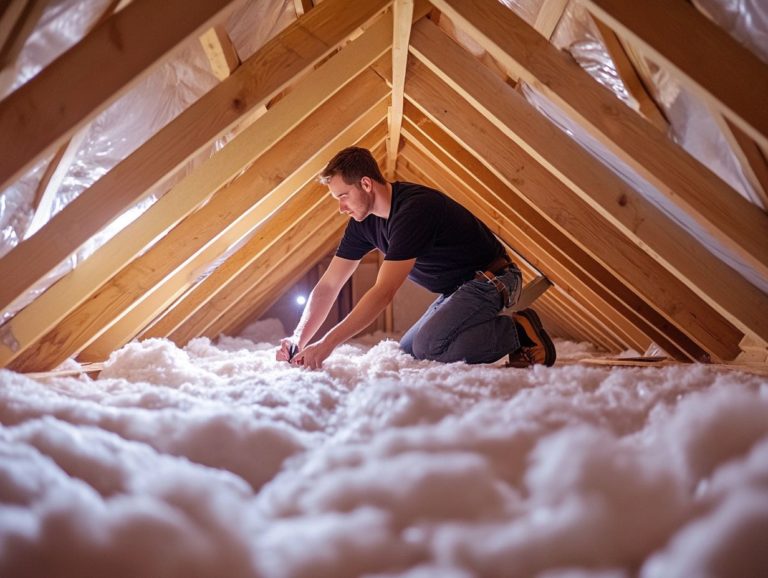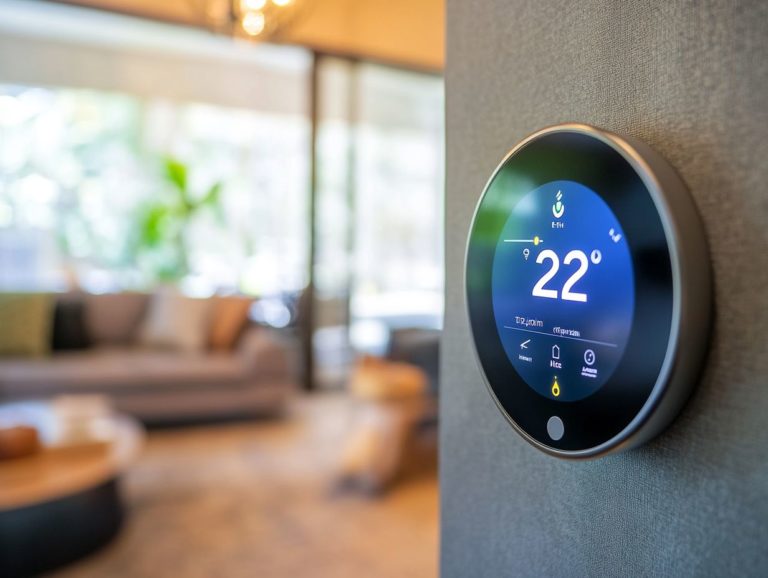How to Conduct a Home Energy Assessment?
Curious about transforming your home into a more energy-efficient sanctuary while keeping some cash in your pocket?
A Home Energy Assessment is your essential first step to truly understanding your energy usage and pinpointing valuable opportunities for improvement.
This article delves into the myriad benefits of conducting an assessment, highlighting potential cost savings and the positive environmental impacts you can make.
It walks you through preparing for the assessment, outlines the step-by-step process, and shows you how to interpret the results. You’ll also find practical strategies for implementing energy-saving measures.
Uncover how small changes can lead to significant savings and create a greener home for yourself!
Contents
- Key Takeaways:
- Benefits of Conducting a Home Energy Assessment
- Preparing for a Home Energy Assessment
- Conducting a Home Energy Assessment
- Interpreting the Results
- Implementing Energy Saving Measures
- Preguntas Frecuentes
- Qu es una evaluaci n de energ a en el hogar y por qu es importante?
- C mo s si necesito una evaluaci n de energ a en el hogar?
- Cu les son los pasos involucrados en realizar una evaluaci n de energ a en el hogar?
- Cu nto tiempo toma t picamente una evaluaci n de energ a en el hogar?
- Hay un costo para una evaluaci n de energ a en el hogar?
- Cu les son algunas recomendaciones comunes para mejorar la eficiencia energ tica del hogar?
Key Takeaways:
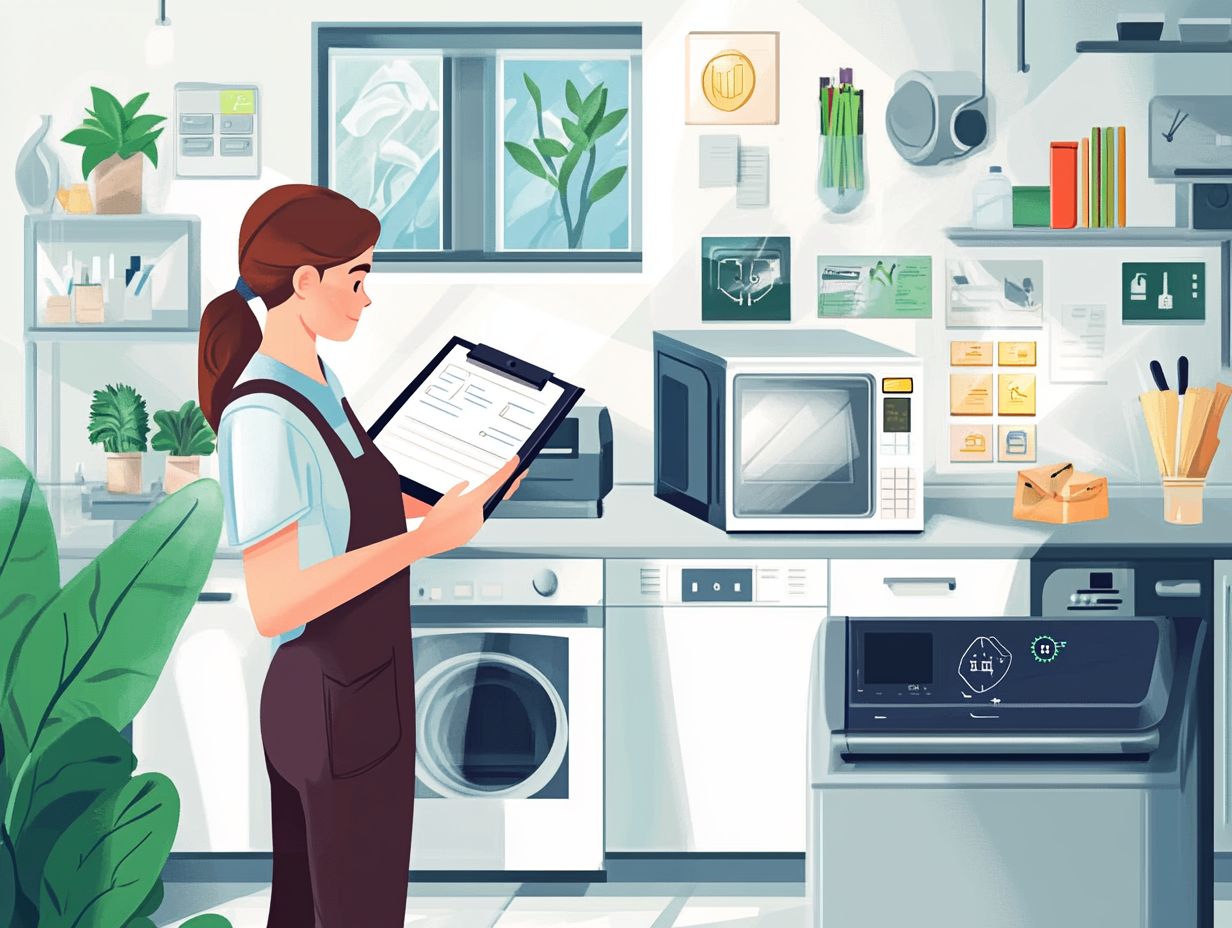
- Save money on utility bills.
- Reduce your carbon footprint.
- Gather necessary information before the assessment.
- Understand energy efficiency ratings, which indicate how effectively your home uses energy.
- Discover practical energy-saving strategies.
A home energy assessment can help save money on utility bills and reduce environmental impact. Before conducting an assessment, gather necessary information such as utility bills and home specifications. The assessment process involves a step-by-step evaluation, including how to conduct a home insulation audit. Understanding energy efficiency ratings is crucial in interpreting the results. Implementing energy-saving measures can be done through practical tips and strategies identified during the assessment.
What is a Home Energy Assessment?
A Home Energy Assessment, commonly known as a home energy audit, is a comprehensive evaluation of your residence’s energy usage that pinpoints opportunities for enhancement and cost savings.
This process is essential for you as a homeowner aiming to boost energy efficiency, cut down on utility expenses, and elevate your overall comfort.
During the assessment, various elements of your home will be scrutinized, including the condition of your windows, the efficiency of your heating and cooling systems, and what to expect during an energy assessment regarding the effectiveness of your lighting.
Armed with advanced tools like infrared cameras and airflow measurement devices, professionals will reveal hidden issues such as thermal leaks and insufficient insulation.
By understanding your energy consumption patterns, you will be empowered to make informed decisions about renovations or upgrades, ultimately leading to a more sustainable living environment and notable energy savings.
Benefits of Conducting a Home Energy Assessment
Conducting a home energy assessment offers a wealth of benefits that can greatly improve your household’s efficiency and comfort. To start, it’s important to learn how to identify home energy leaks, as this can also make a positive impact on your finances and the environment.
By understanding your energy consumption through a professional audit or even a DIY approach, you can uncover significant cost savings by pinpointing energy efficiency issues that inflate your utility bills.
These assessments help you start living sustainably. They guide you toward energy-efficient upgrades and smart energy-saving strategies.
Cost Savings and Environmental Impact
The connection between cost savings and the environmental impact of energy-efficient upgrades is truly significant. By conducting a strategic home energy assessment, you can uncover opportunities to lower both your energy bills and your carbon footprint.
Implementing the energy-saving measures identified in this assessment allows you to dramatically reduce your energy consumption, resulting in substantial cuts to your monthly utility bills. All while contributing to a cleaner, greener planet.
This approach benefits your wallet and our planet! It’s a win-win!
For example, by installing energy-efficient appliances, upgrading insulation, and utilizing smart thermostats, you can further bolster your energy conservation efforts.
These enhancements often qualify for rebates and tax incentives, amplifying your financial savings even more. Lowering your energy usage translates into reduced greenhouse gas emissions, promoting a sustainable future.
You can also look into renewable energy options, such as solar panels, which can significantly boost your savings and reduce your reliance on fossil fuels. This shows the importance of responsible energy management in today s world.
Start your assessment today and take the first step toward savings!
Preparing for a Home Energy Assessment
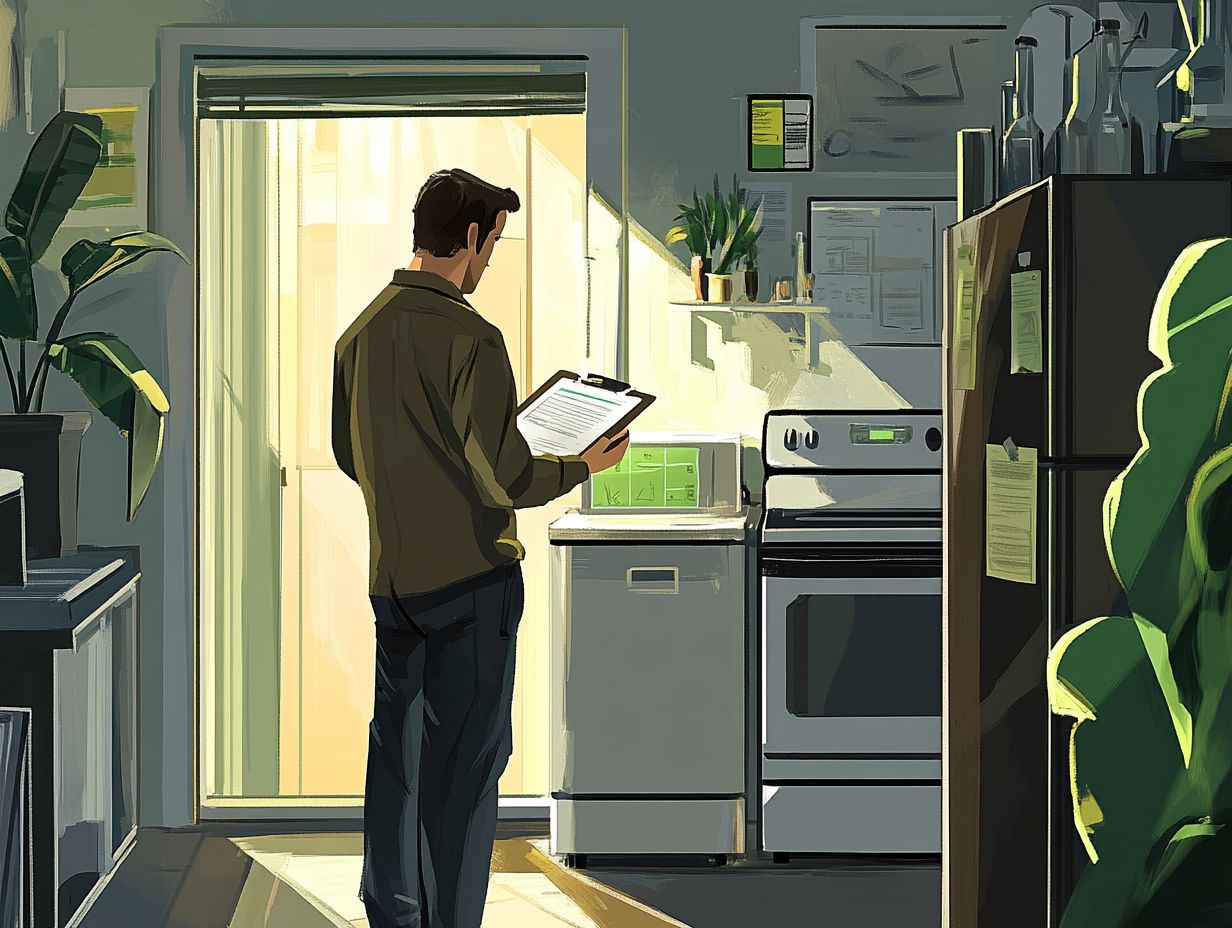
Preparing for a home energy assessment is your first step toward saving money and improving comfort. Proper preparation ensures a thorough evaluation and helps you understand how to optimize your home’s energy performance, maximizing the benefits of the audit report.
Gather essential information like past utility bills, previous energy audits, and details about your heating, ventilation, and air conditioning (HVAC) system and insulation levels. This makes the process smoother for both professional audits and DIY approaches.
Utilizing an energy audit kit gives you the power to prepare effectively, which leads to a comprehensive review of your energy consumption patterns.
Conducting a Home Energy Assessment
You can approach a home energy assessment through various methods. Consider exploring options like a professional audit or a DIY route that suits your needs, such as learning how to make your home more energy efficient.
Each method involves evaluating energy efficiency. Professionals use advanced tools like infrared cameras and blower door tests to find hidden energy leaks.
You can also use energy audit kits for your assessments. These kits help you confidently pinpoint potential energy-saving measures.
Step-by-Step Process
The process of conducting a home energy assessment unfolds through key phases designed to evaluate your home’s energy consumption, as detailed in the complete guide to home energy assessments.
- Begin with a thorough review of your energy usage over the past few months.
- Next, conduct a visual inspection of insulation, HVAC systems, and air leaks. This foundational assessment helps identify improvement areas.
- Next, use specialized tools like blower doors and infrared cameras to uncover hidden leaks.
- Analyze the gathered data to prioritize improvement areas based on cost-effectiveness and energy savings.
- Consider consulting energy professionals for personalized advice tailored to your situation.
- Finally, document your results and track your energy consumption after upgrades to measure tangible benefits.
Interpreting the Results
Understanding the results of your home energy assessment is vital for grasping energy efficiency ratings. The audit report outlines areas needing attention, such as insulation gaps and air leaks.
It offers tailored recommendations that can significantly enhance your energy consumption and comfort levels.
Understanding Energy Efficiency Ratings
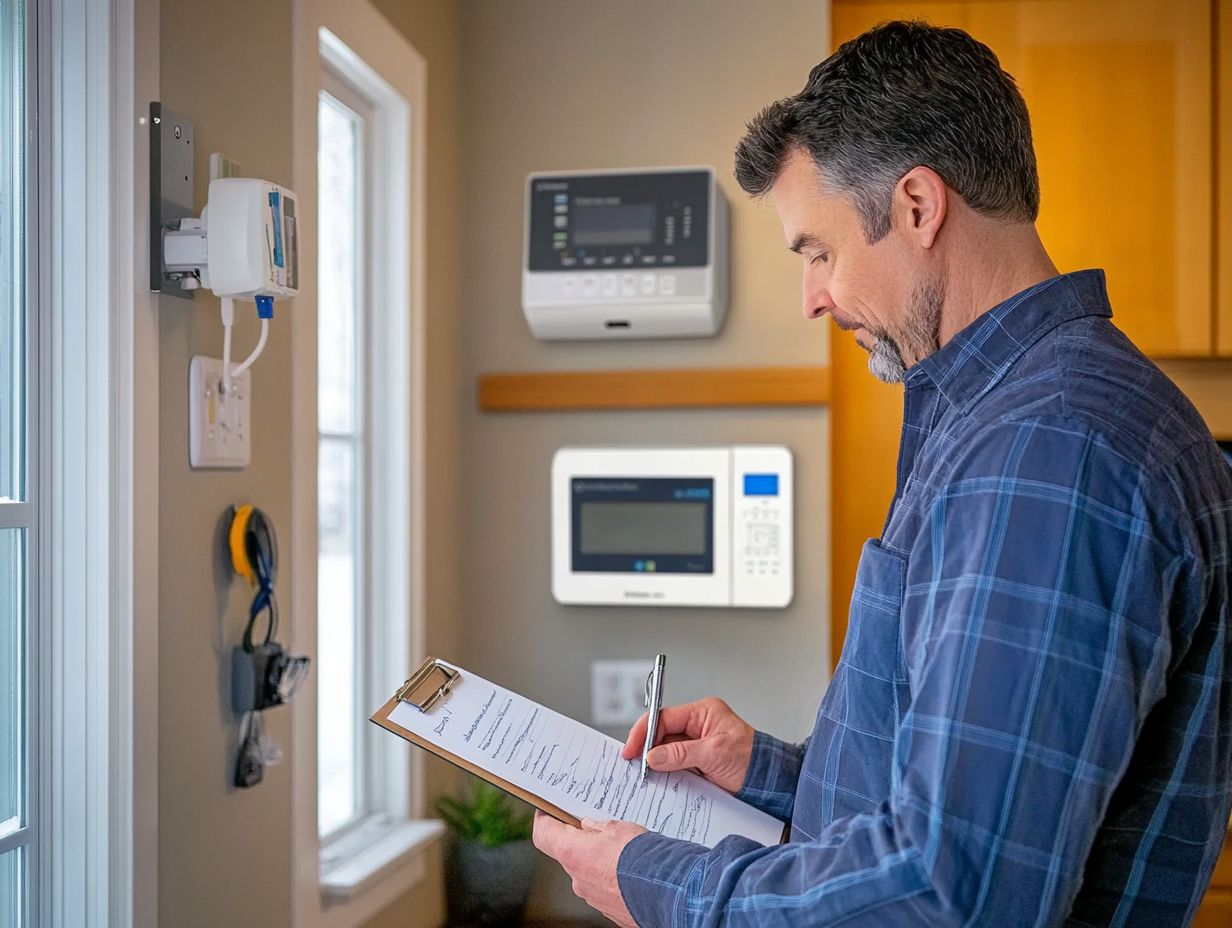
Understanding energy efficiency ratings is crucial for homeowners wanting to improve comfort and reduce energy costs. These ratings show how elements in your home like insulation quality and HVAC performance affect energy use and highlight energy-saving opportunities.
By evaluating these ratings, you can identify which components, such as windows and heating systems, yield the best upgrades. Energy efficiency ratings result from standardized tests assessing factors like energy output.
This knowledge helps you spot specific improvement areas, allowing you to prioritize upgrades that enhance comfort while cutting utility bills. Understanding these ratings empowers you to choose the right products for your comfort and savings.
Implementing Energy Saving Measures
Implementing energy-saving measures is essential for maximizing the benefits of your home energy assessment. To get started, consider how to conduct an energy audit on a budget. This proactive approach enables you to make energy-efficient upgrades that can significantly reduce your energy bills while enhancing your comfort.
From installing smart meters that allow for precise monitoring of your energy consumption to checking your appliances and applying weatherstripping to eliminate pesky drafts, each of these measures serves a vital purpose in boosting your overall energy efficiency.
Practical Tips and Strategies
To effectively implement energy-saving measures, you can embrace practical tips and strategies that enhance your energy efficiency and improve your air quality and comfort.
Simple changes, like upgrading to energy-efficient bulbs, optimizing your HVAC system, and regularly inspecting for insulation gaps and air leaks, can lead to significant energy savings and a smaller carbon footprint.
Incorporating smart thermostats allows you to fine-tune your heating and cooling schedules, ensuring that energy is consumed only when necessary. Investing in weather-stripping around your doors and windows adds an extra layer of protection against drafts, further bolstering your home s insulation.
Consider using programmable power strips to mitigate energy waste from idle electronics. By conducting seasonal maintenance on your appliances and participating in local energy efficiency programs, you can achieve substantial reductions in your monthly bills.
Collectively, these small yet impactful actions create a more comfortable living environment, reinforcing the advantages of an energy-conscious lifestyle. These small steps can lead to big savings!
Preguntas Frecuentes
Qu es una evaluaci n de energ a en el hogar y por qu es importante?
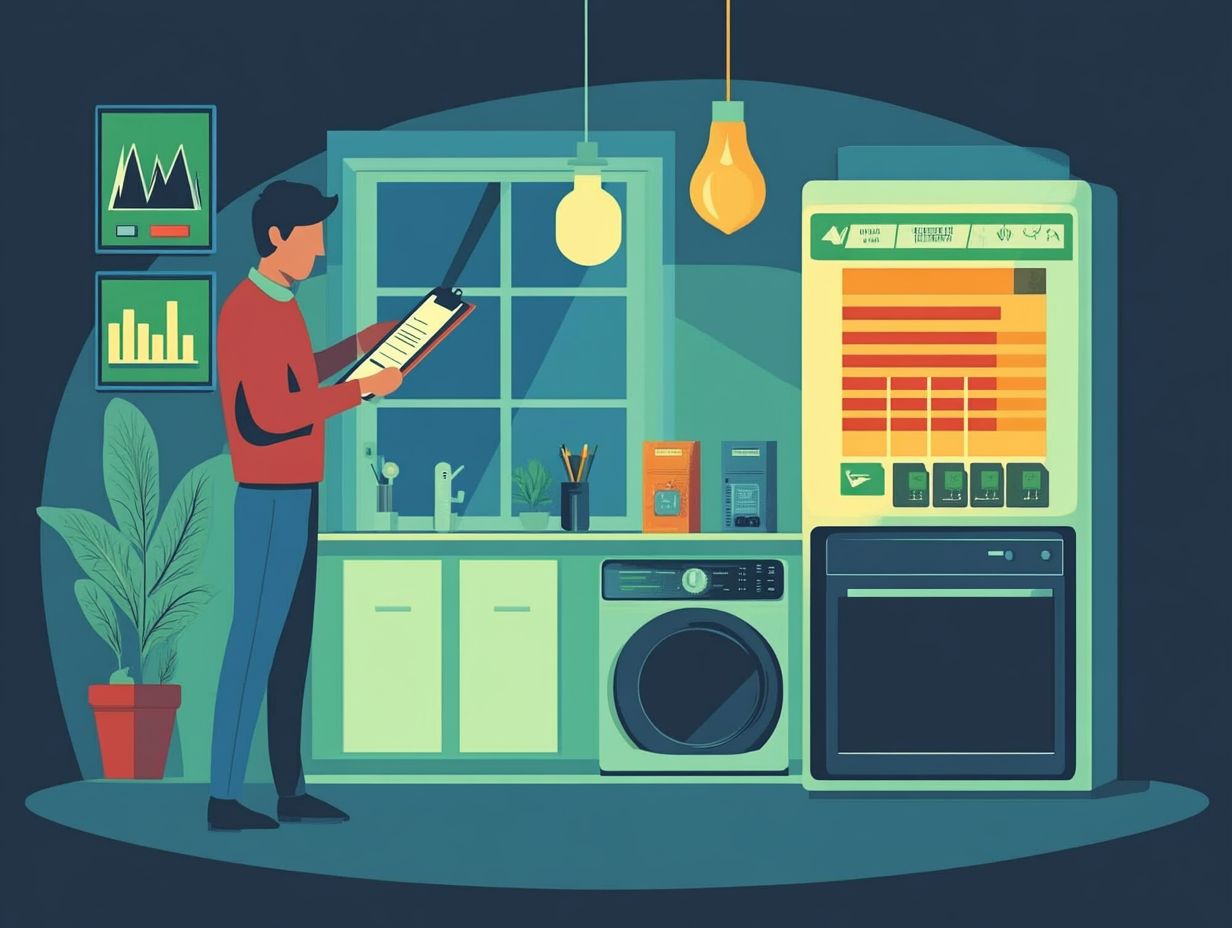
Una evaluaci n de energ a en el hogar, tambi n conocida como auditor a de energ a, es un proceso de evaluaci n de la eficiencia energ tica de una vivienda. Implica que un profesional realice una inspecci n exhaustiva del uso de energ a en el hogar e identifique reas donde la energ a puede ser desperdiciada o utilizada de manera ineficiente.
Esta evaluaci n es importante porque puede ayudar a los propietarios a ahorrar dinero en sus facturas de energ a y reducir su huella de carbono.
C mo s si necesito una evaluaci n de energ a en el hogar?
Si est experimentando facturas de energ a m s altas de lo normal, tiene habitaciones con corrientes de aire y poco confort, o est preocupado por la eficiencia energ tica de su hogar, entonces puede beneficiarse de una evaluaci n de energ a en el hogar.
Tambi n es una buena idea realizar una evaluaci n si su hogar es m s antiguo y no ha sido evaluado por su eficiencia energ tica en el pasado.
Cu les son los pasos involucrados en realizar una evaluaci n de energ a en el hogar?
El primer paso es programar una cita con un auditor de energ a profesional. El auditor realizar una inspecci n visual del exterior, interior, electrodom sticos y la iluminaci n de su hogar.
Tambi n puede utilizar herramientas especializadas como una puerta de soplado o una c mara infrarroja para identificar fuentes de p rdida de energ a.
Despu s de la evaluaci n, el auditor le proporcionar un informe detallado y recomendaciones para mejorar la eficiencia energ tica de su hogar.
Cu nto tiempo toma t picamente una evaluaci n de energ a en el hogar?
La duraci n de una evaluaci n de energ a en el hogar puede variar dependiendo del tama o de su hogar, su antig edad y su nivel de eficiencia energ tica. En promedio, una evaluaci n puede tardar entre 1 y 3 horas.
Sin embargo, los hogares m s grandes o complejos pueden tardar m s en evaluarse.
Hay un costo para una evaluaci n de energ a en el hogar?
En algunos casos, una evaluaci n de energ a en el hogar puede ofrecerse de forma gratuita o a un precio reducido a trav s de programas gubernamentales o de servicios p blicos.
Sin embargo, si decide contratar a un auditor de energ a profesional, puede haber una tarifa asociada con la evaluaci n. El costo puede variar seg n el proveedor y el tama o de su hogar, pero los ahorros potenciales en sus facturas de energ a pueden a menudo superar el costo inicial.
Cu les son algunas recomendaciones comunes para mejorar la eficiencia energ tica del hogar?
Despu s de evaluar su hogar, el auditor de energ a puede recomendar instalar luces que ahorren energ a o sellar las fugas de aire.
Puede sugerir agregar aislamiento o actualizar a electrodom sticos que consumen menos energ a. Tambi n se pueden ofrecer consejos sobre c mo cambiar algunos h bitos para reducir el uso de energ a. Seguir estas recomendaciones puede ayudarte a ahorrar dinero y mejorar tu hogar.

